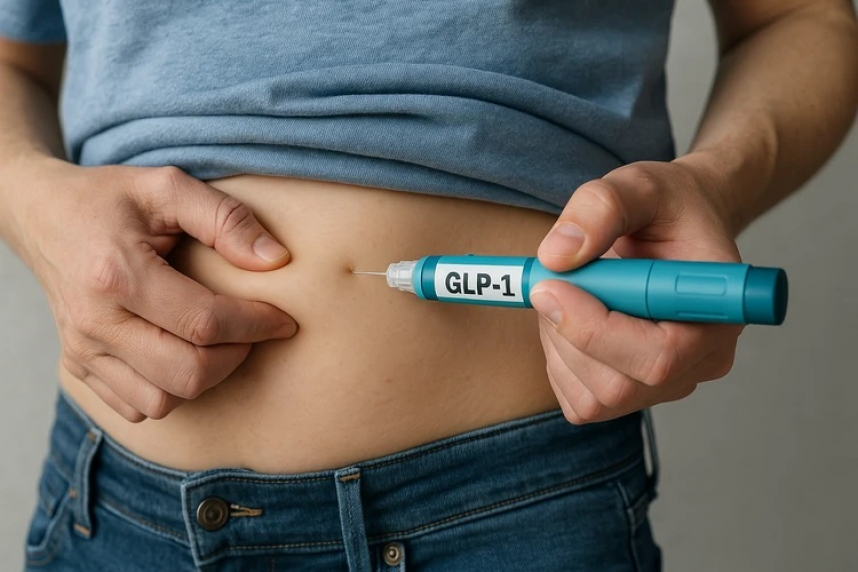
Widely used GLP-1 drugs for type 2 diabetes, such as Novo Nordisk's Ozempic, may modestly reduce the risk of obesity-related cancers, especially colorectal cancer, according to data released on Thursday (22/05/25) ahead of a major medical meeting.
Among more than 85,000 people with type 2 diabetes and obesity treated between 2013 and 2023 and followed for an average of nearly four years, 2,501 obesity-related cancers developed in those taking GLP-1 diabetes drugs, compared with 2,671 such cancers in those treating their diabetes with medicines from a class known as DPP-4 inhibitors.
After accounting for individual risk factors, those taking GLP-1 drugs had a 7% lower risk of developing an obesity-related cancer and an 8% lower risk of death from any cause compared to those who took a DPP-4 inhibitor, a summary of data to be presented at the upcoming American Society of Clinical Oncology meeting in Chicago showed.
The effect was only statistically significant in women, researchers said.
Other GLP-1 drugs for improving blood glucose control taken by patients in the study include Eli Lilly’s Trulicity and Novo’s Victoza and Rybelsus, among others.
These drugs deliver a lower dose of their main ingredient compared to GLP-1 drugs designed to induce weight loss.
DPP-4 inhibitors include Merck & Co's Januvia and Nesina from Takeda Pharmaceuticals.
While a modestly reduced risk for 14 obesity-related cancers was evident with GLP-1 drugs, the suggestion of a protective effect was particularly strong for colorectal malignancies.
There were 16% fewer colon cancer cases and 28% fewer rectal cancer cases in the group prescribed GLP-1 receptor agonists.
Observational studies like this cannot prove that the GLP-1 drugs caused lower cancer rates.
"These data are reassuring, but more studies are required to prove causation," lead study author Lucas Mavromatis, a medical student at the NYU Grossman School of Medicine in New York, said in a statement.